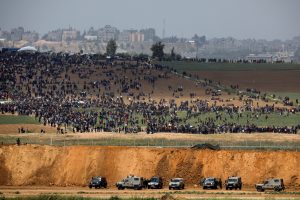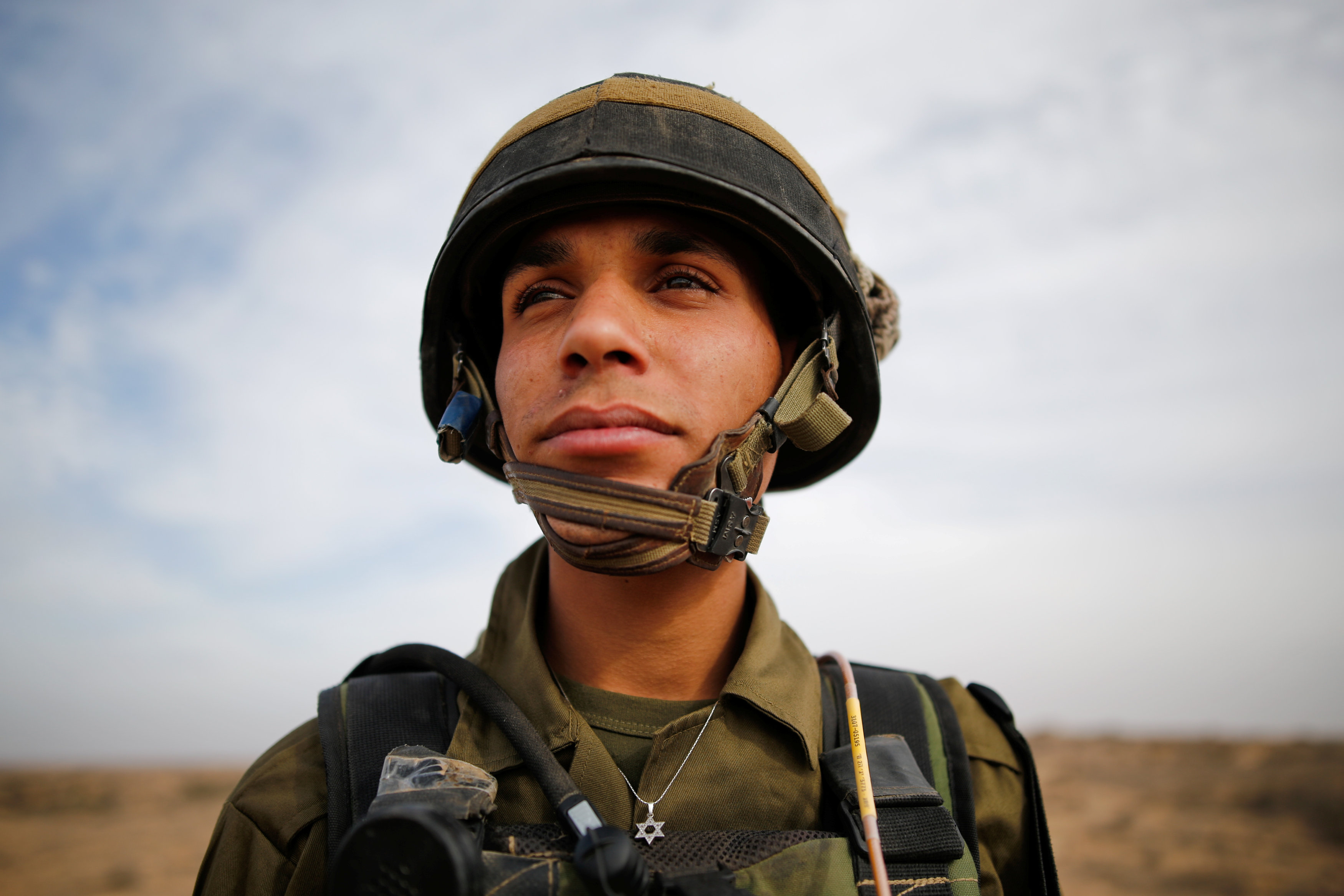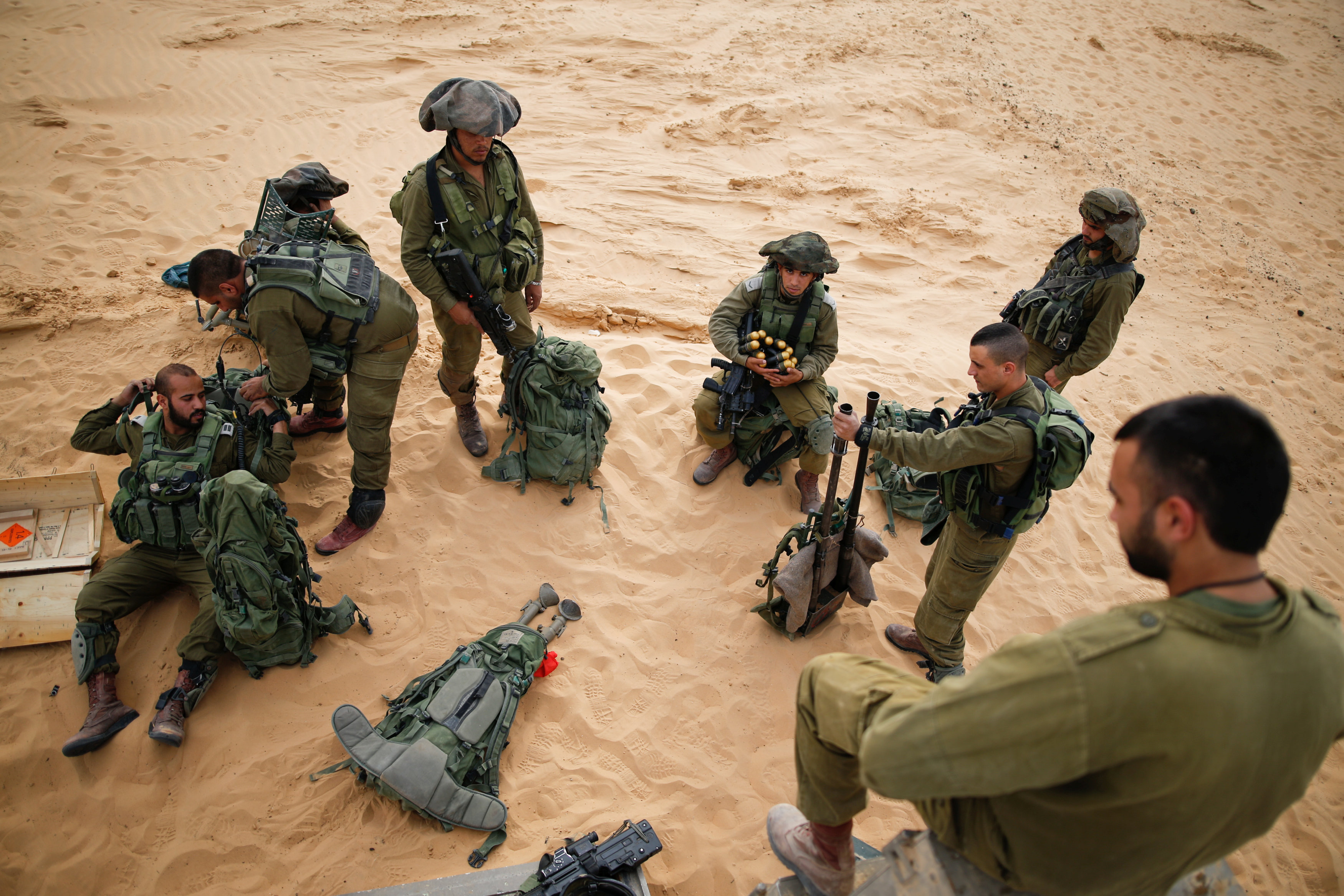
By Nidal al-Mughrabi
GAZA-ISRAEL BORDER (Reuters) – At least 15 Palestinians were killed and hundreds injured by Israeli security forces confronting one of the largest Palestinian demonstrations along the Israel-Gaza border in recent years, Gaza medical officials said.
Tens of thousands of Palestinians, pressing for a right of return for refugees to what is now Israel, gathered at five locations along the fenced 65-km (40-mile) frontier where tents were erected for a planned six-week protest, local officials said. The Israeli military estimate was 30,000.
Families brought their children to the encampments just a few hundred meters (yards) from the Israeli security barrier with the Hamas Islamist-run enclave, and football fields were marked in the sand and scout bands played.
But as the day wore on, hundreds of Palestinian youths ignored calls from the organizers and the Israeli military to stay away from the frontier, where Israeli soldiers across the border kept watch from dirt mound embankments.
The military said its troops had used “riot dispersal means and firing towards main instigators.” Some of the demonstrators were “rolling burning tires and hurling stones” at the border fence and at soldiers.
Two Palestinians were killed by tank fire, the Gaza Health Ministry said. The Israeli military said the two were militants who had opened fire at troops across the border.
Palestinian health officials said Israeli forces used mostly gunfire against the protesters, in addition to tear gas and rubber bullets. Witnesses said the military had deployed a drone over at least one location to drop tear gas.
Live fire was used only against people trying to sabotage the border security fence and at least two of the dead were Hamas operatives, an Israeli military official said.
Gaza health officials said one of the dead was aged 16 and at least 400 people were wounded by live gunfire, while others were struck by rubber bullets or treated for tear gas inhalation.
Palestinian President Mahmoud Abbas said in a statement that Israel was responsible for the violence and declared Saturday a national day of mourning.
The United Nations Security Council was due to meet later on Friday to discuss the situation in Gaza, diplomats said.

Israeli military vehicles are seen next to the border on the Israeli side of the Israel-Gaza border, as Palestinians demonstrate on the Gaza side of the border, March 30, 2018. REUTERS/Amir Cohen
RIGHT OF RETURN
The protest presented a rare show of unity among rival Palestinian factions in the impoverished Gaza Strip, where pressure has been building on Hamas and Abbas’s Fatah movement to end a decade-old rift. Reconciliation efforts to end the feud have been faltering for months.
The demonstration was launched on “Land Day,” an annual commemoration of the deaths of six Arab citizens of Israel killed by Israeli security forces during demonstrations over government land confiscations in northern Israel in 1976.
But its main focus was a demand that Palestinian refugees be allowed the right of return to towns and villages which their families fled from, or were driven out of, when the state of Israel was created in 1948.
In a statement, the Israeli military accused Hamas of “cynically exploiting women and children, sending them to the security fence and endangering their lives”.
The military said that more than 100 army sharpshooters had been deployed in the area.
Hamas, which seeks Israel’s destruction, had earlier urged protesters to adhere to the “peaceful nature” of the protest.
Israel has long ruled out any right of return, fearing an influx of Arabs that would wipe out its Jewish majority. It argues that refugees should resettle in a future state the Palestinians seek in the Israeli-occupied West Bank and Gaza. Peace talks to that end collapsed in 2014.
There were also small protests in the Israeli-occupied West Bank, and about 65 Palestinians were injured.
In Gaza, the protest was dubbed “The March of Return” and some of the tents bore names of the refugees’ original villages in what is now Israel, written in Arabic and Hebrew alike.
Citing security concerns, Israel, which withdrew troops and settlers from Gaza in 2005, blockades the coastal territory, maintaining tight restrictions on the movement of Palestinians and goods across the frontier. Egypt, battling an Islamist insurgency in neighboring Sinai, keeps its border with Gaza largely closed.
(Additional reporting by Maayan Lubell in Jerusalem; Ali Sawafta in Ramallah; Michelle Nichols in New York; Writing by Ori Lewis and Stephen Farrell; Editing by Richard Balmforth and Gareth Jones)





